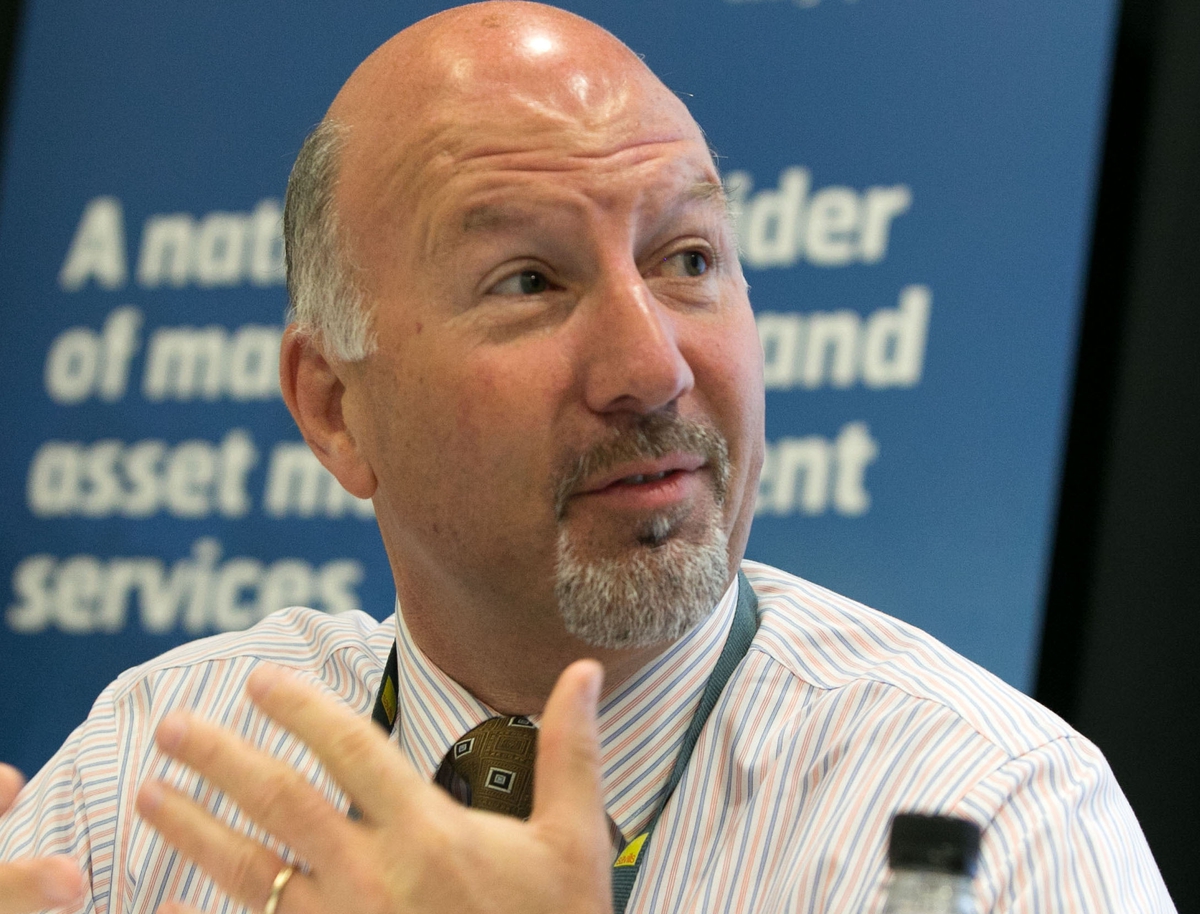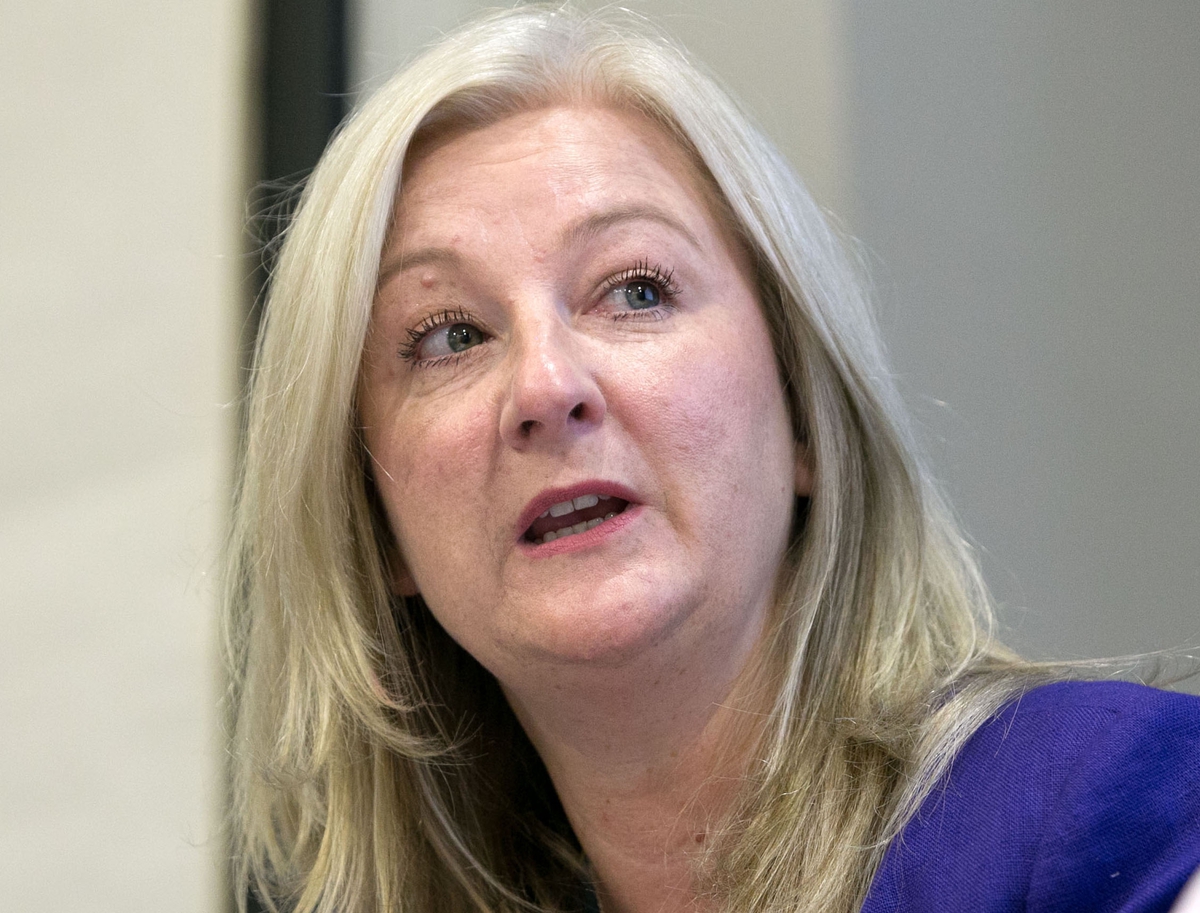Tough choices
Despite being urged to focus on development by Mark Prisk last week, an exclusive survey carried out by Inside Housing, Wates Living Space and Orbit Group, reveals that providers may have to concentrate on rent collection instead. Carl Brown reports
The message from Mark Prisk last week following the spending review could not be any clearer. The housing minister wants landlords to focus on development - but particularly on generating cross-subsidy to supplement government grant in order to achieve this.
This is all very well, but as the findings from an exclusive survey by Inside Housing, Wates Living Space and Orbit Group reveal, there is a real danger landlords are being sidetracked from development by the need to protect their income in the face of welfare reform.

Midland Heart’s Ruth Cooke
The findings, discussed at a breakfast event at the Chartered Institute of Housing conference in Manchester last week, show the challenge landlords expect simply to retain their current level of rental income - let alone find new sources of revenue to build new homes.
Increasing arrears
The survey of 129 housing professionals across the UK found 87 per cent expect rent arrears to increase over the next year (see box: The results). Almost half (45 per cent) expect arrears to increase to between 5 and 10 per cent, while one in five (20 per cent) fear arrears will increase to 10 per cent or more. A total of 27 per cent believe more than half of tenants are unprepared for welfare reform and are therefore likely to fall into rent arrears. Ultimately, this is likely to translate into evictions, and more than half of respondents (54 per cent) say they expect an increase over the next year.
Several landlords at the breakfast event, held a day after the spending review announcement, say the need to manage this threat to income is likely to prevent landlords from focusing to the extent they might on development.

Orbit Group’s Paul Tennant
Panellist Paul Tennant, chief executive of Orbit Group, says the amount of preparation his association has put into preventing arrears ‘has been huge’, and arrears are nevertheless creeping up, as are intervention and management costs. ‘That’s starting to have an impact on the other options that we could do as an organisation, certainly around development,’ he says.
Another panellist Ruth Cooke, chief executive of Midland Heart, echoes this. She says her organisation predicted that 70 per cent of its bedroom tax-affected tenants would pay the shortfall in their rent, but just 35 per cent have so far done so. Ms Cooke reveals there has been a 20 per cent increase in tenancy terminations at the organisation and that she expects voids to increase. She says associations are spending more time than they want to ‘on the basics of getting the rent in’.
‘It will constrain what we want to do, there’s no doubt about that,’ she says.

HCA director Deborah McLaughlin
This mood was detected by Deborah McLaughlin, executive director for the north west at the Homes and Communities Agency. Ms McLaughlin describes the announcement of £3.3 billion for affordable housing as ‘good news’ and says she was initially positive that landlords would ‘gear up for development’.
However, following the unveiling of the survey results, she says: ‘Looking at the challenges you are facing as organisations, I can see a shift towards a greater focus on managing stock, working with tenants and maybe for a while… a shift away from development.’
But to what extent should landlords seek to help tenants pay their rent and sustain their tenancies? Matthew Gardiner, chief executive of Trafford Housing Trust, tells the panel he fears an erosion of the contract between tenant and landlord, under which the tenant pays rent for a service, if landlords intervene to too great an extent.
A difficult choice
Turlogh O’Brien, chair of London & Quadrant, says: ‘MPs and to some extent councillors, are beginning to say “why don’t you use your surpluses to deal with the welfare reform issues?”. Of course we could make that choice but that means fewer homes are built.’

Wates Living Space’s Andy Hobart
Andy Hobart, managing director of contractor Wates Living Space, is the one person in the room to talk up the possibility of helping to boost development. ‘We see ourselves sharing risk and helping to develop and investing in funding solutions that help generate supply,’ he says.
But the overall conclusion is that landlords fear they will have to focus to a greater extent on rent collection and tenancy management at the expense of development.
This fear appears to have been recognised by welfare reform minister Lord David Freud, who used his speech at the CIH conference to announce further measures to protect landlords’ income when direct payment of benefit to tenants comes into effect from October.
The government will switch payment of benefit to landlords when a claimant has built up the equivalent of two months of rent arrears, under a mechanism called ‘managed payments’. Lord Freud says that when a tenant on ‘managed payments’ has cleared their arrears, the Department for Work and Pensions will aim to return the claimant to direct payment within six months.
The sector hopes this will be enough. Otherwise the government’s ambitions of 165,000 new affordable homes being built between 2015 and 2018 may become difficult to achieve.
The results
70 per cent of 129 survey respondents say fewer than half of tenants are prepared and able to meet rent
22 per cent say more than half were prepared but likely to fall into rent arrears
27 per cent say more than half are unprepared and likely to fall into rent arrears
87 per cent expect rent arrears to increase over the next 12 months
45 per cent expect arrears to increase to between 5 and 10 per cent; 20 per cent expect them to rise to more than 10 per cent
54 per cent of respondents say evictions will increase












